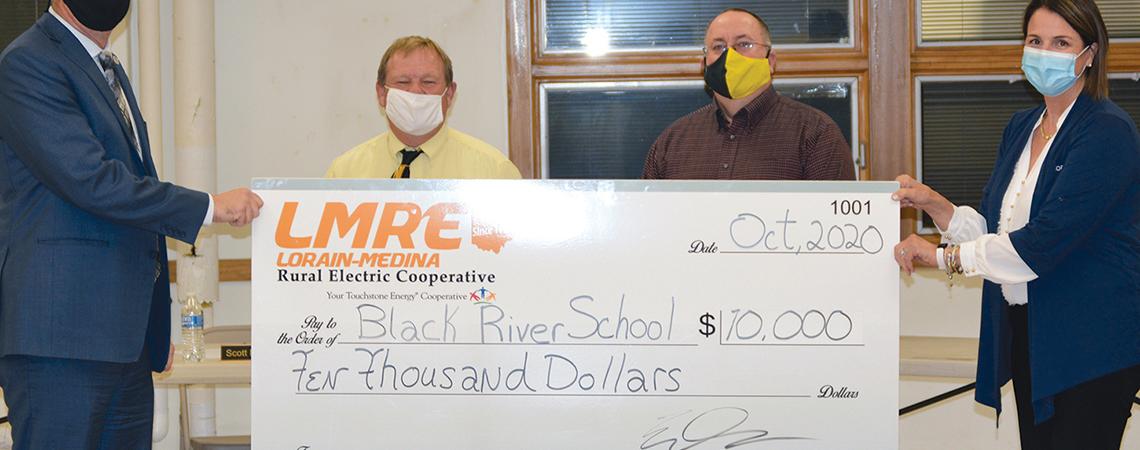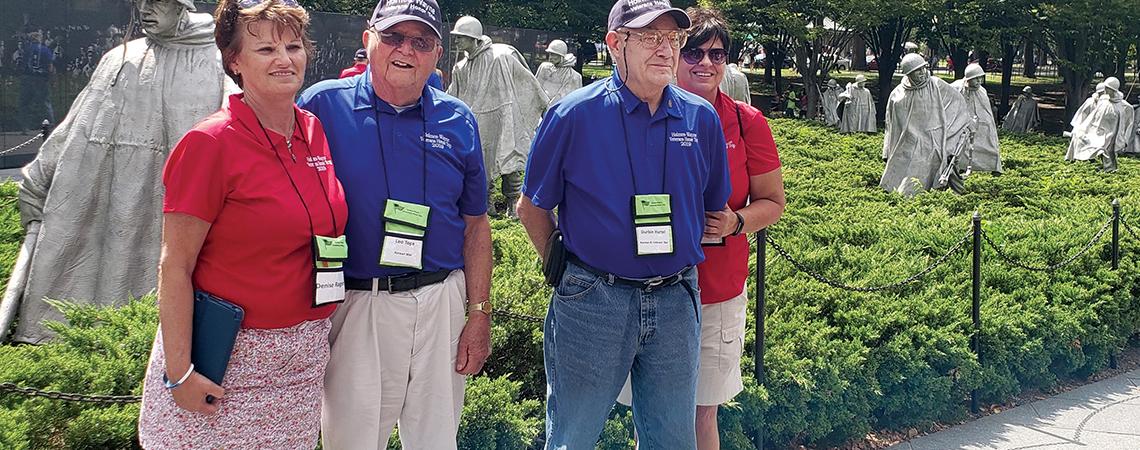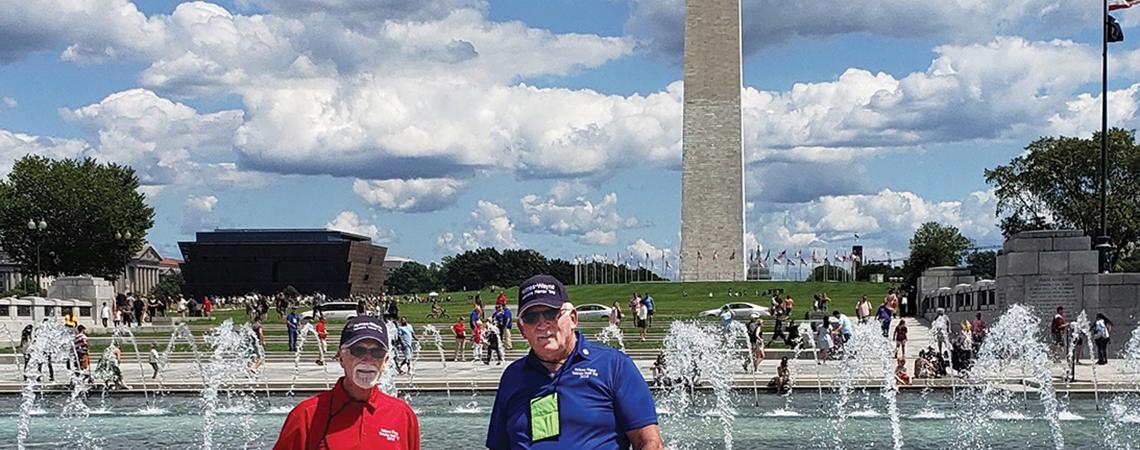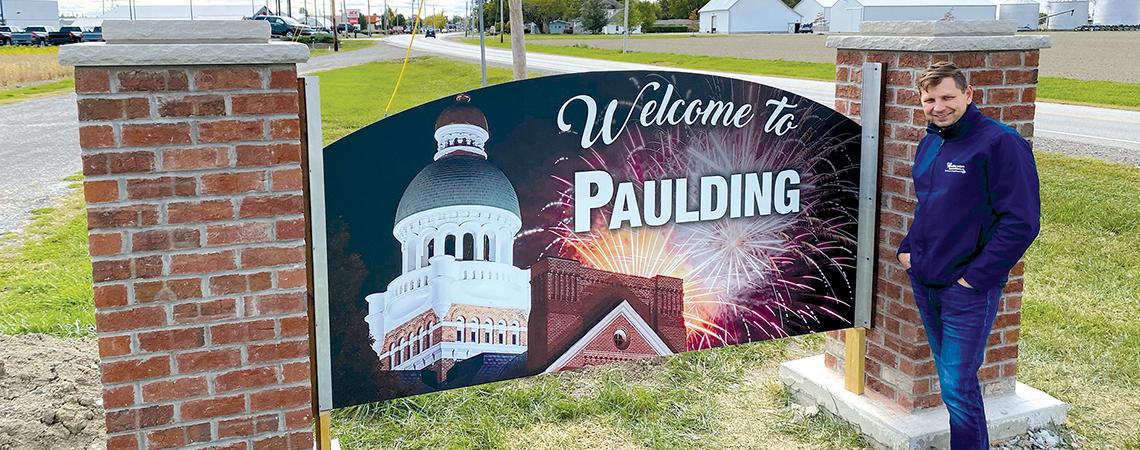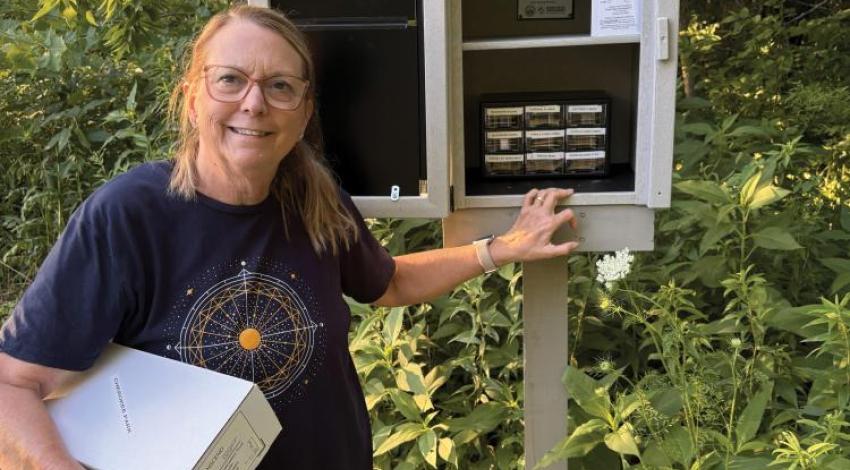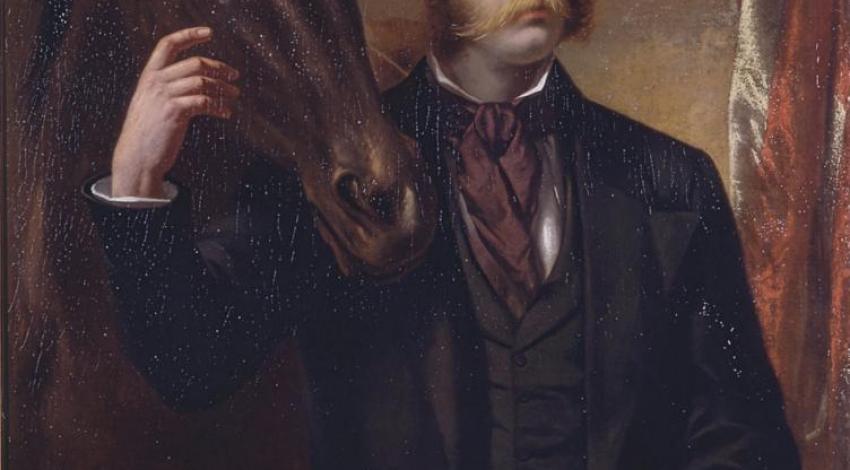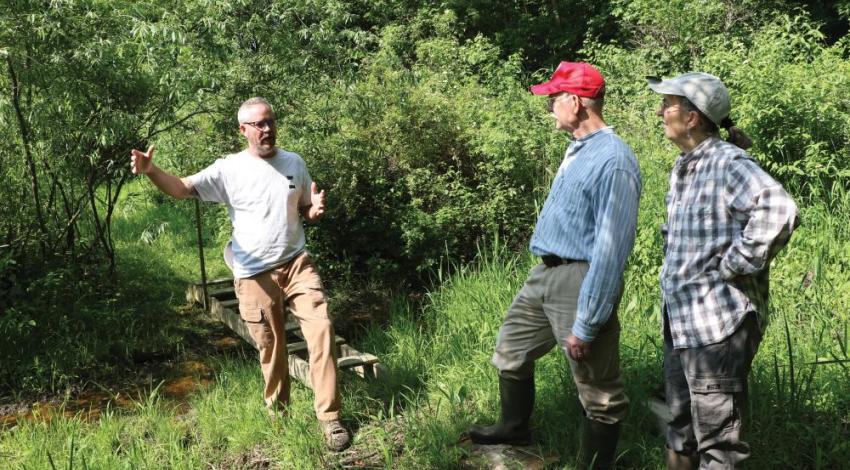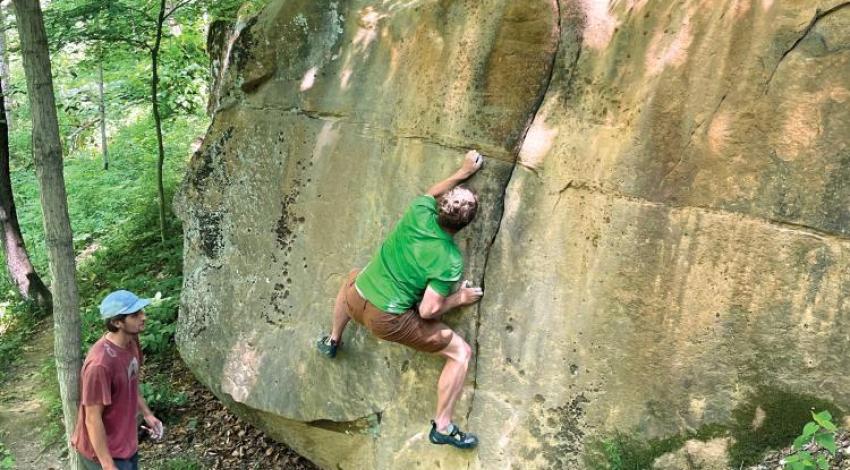School districts across the country struggled with how to continue their operations through the COVID-19 pandemic. How could they keep kids and teachers safe during in-building instruction? If schools went online, how could they assure that everyone had access to the same level of instruction? Even more complicated, what if they needed to do both?
That was the issue faced at Black River Schools in Medina County. Superintendent Chris Clark and the school board looked at the data and determined their best option was to keep in-person instruction as much as possible. As a small, rural district — serving 1,200 students from Medina, Ashland, and Lorain counties — its schools already had relatively small classes, most of which could be spread out to maintain 6 feet between students during in-class learning.
Ed VanHoose (left) and Kathryn Grasz (right) from Lorain-Medina Rural Electric Cooperative present a check to Black River Local Schools to help offset COVID-related expenses.
But the coronavirus did force changes. The district needed to find a way to teach the 230 students who chose online instruction, while keeping those in the buildings safe with increased personal protective gear and gallons upon gallons of sanitizer for hands and high-touch surfaces, as well as other incidentals that came up every day.
“Contrary to what anyone may think, these expenses have not been just a drop in the bucket, and there has not been much help forthcoming from the state or federal government,” Clark says. “All of our COVID-related expenses have really added up.”
As entities everywhere were figuring out how to deal with those and other issues, Clark spent time in several community meetings that also included Ed VanHoose, general manager of Wellington-based Lorain-Medina Rural Electric Cooperative (LMRE), which serves Black River Schools.
VanHoose immediately began thinking about ways the co-op could help. Black River and LMRE have a long history of partnerships. This time, VanHoose and his staff were able to take advantage of a program through LMRE’s financial institution, CoBank, that turned $5,000 in LMRE money into $10,000 that Black River Schools used to offset a good chunk of those COVID-related expenses.
“We saw a need and we acted,” VanHoose says. “Doing what is right and necessary for our members and community is at the very core of what a cooperative does.”
Electric cooperatives have that same attitude; Concern for Community is one of the defining principles at the heart of what it means to be a cooperative, after all, and co-ops show that concern in lots of different ways. In the past few months alone, Ohio cooperatives have supported the Marion Palace Theatre, Marysville Uptown Theatre, Mercy Unlimited in Wapakoneta, and New Washington Little League — just to name a few.
Sometimes co-ops are able to secure matching funds through initiatives like CoBank’s Sharing Success program. But many also make use of a donation program that allows their consumer-members to round up their electric bills, and the co-ops in turn use that money for small grants to organizations and individuals in need of help. Ohio co-ops distributed more than $1.2 million in member donations through those programs last year.
That money went to groups like the Homeward Bound Dog Shelter of Ashland County, through Firelands Electric Cooperative in New London; the Ohio Dyslexia Center in Fresno, through Coshocton-based Frontier Power Company; and Hope’s Closet in West Chester Township, through Butler Rural Electric Cooperative in Oxford. Guernsey-Muskingum Electric Cooperative helped a Wills Township family stay off the streets by paying an unexpected medical bill. The Marion Fire Department purchased three new water rescue suits with a grant from Mid-Ohio Energy Cooperative in Kenton.
Co-ops’ concern for their communities, however, goes beyond monetary donations.
Nearly every co-op offers scholarships to children of members as those students prepare for life after high school. Many cooperatives conduct food drives throughout the year and only added to their pace in 2020 as the COVID-19 pandemic increased the need at food banks across the state.
Millersburg-based Holmes-Wayne Electric Cooperative has sponsored four Honor Trips to Washington, D.C. Helped by donations from community sponsors, the co-op has made it possible for nearly 100 veterans and their escorts to take what’s described as the trip of a lifetime.
Co-ops also encourage employees to show local community pride through service projects. With support from Paulding-based Paulding Putnam Electric Cooperative (PPEC), employee Peter Niagu put together and implemented a plan to install welcome signs to greet visitors entering the town.
“Part of being a cooperative is being a vital part of our community,” says PPEC President and CEO George Carter. “Cooperatives help build a better America, and that starts with making a better, more empowered local community.”

